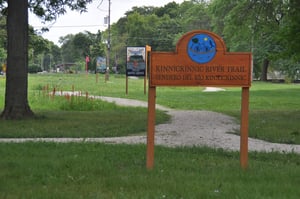Increasing Healthcare Workforce Diversity with Community Health Grants
November 17, 2022 Posted by Jesse M. Ehrenfeld, MD, MPH

To learn more about this funded project, click here.
How do we change the face of the healthcare workforce to better represent all the people of Wisconsin?
Our state faces a shortage of healthcare providers from underrepresented groups. This disparity in the healthcare workforce contributes to other healthcare gaps in our state.
One way that AHW and other organizations are working together to remedy this problem is by distributing community health grants to projects that are creating a healthcare workforce that better represents the demographics of Wisconsin’s diverse communities.
One of the groups that would benefit from more health care workers representing their culture is the Hmong community.
Wisconsin’s Hmong Population
With more than 58,000 residents, Hmong represent the largest Asian American ethnic group in Wisconsin. Hmong refugees began arriving in Wisconsin in the 1970s after facing persecution in their former homes in Vietnam and Laos. With prospects limited by language and cultural barriers, it is not surprising to see limited Hmong representation in the state’s healthcare workforce.
‘Grow Our Own’ Solution
The Wisconsin Hospital Association recommends a solution for this problem: encouraging more students from underrepresented groups to enroll in medical school programs.
That means developing a pathway and providing support for students from backgrounds who are underrepresented in medicine (URiM), like the Hmong.
In July 2020, the Advancing a Healthier Wisconsin Endowment awarded a grant to a project titled MCW-CW Advocates in Medicine Pathway: Promoting Inclusion of Rural and Hmong Students in the Physician Workforce.
What does this funding support? And how can it help more Hmong people become doctors?
A Career Path for Rural and Hmong Doctors
The grant is helping the the Medical College of Wisconsin-Central Wisconsin to develop an Advocates in Medicine (AMP) pathway designed to help more rural and Hmong undergrads to move into medical school.
The project engages with students at UW-Stevens Point at Wausau to develop relationships, resilience, and knowledge of health care issues in Wisconsin such as opioid abuse.
The students go on field trips and participate in volunteer activities that get them involved in the healthcare system. They also receive mentoring from MCW-CW faculty, medical students, and community members.
Since receiving the grant, the project has
-
Provided skill-building workshops, mentorships, and individual check-in opportunities for participating students
-
Graduated the first cohort of UW-Stevens Point students in July 2021; many graduates plan to apply to medical school
-
Recruited a second cohort that includes 3 rural students and 5 Hmong students
-
Received approval for a direct interview option for students applying to MCW-CW
Encouraging Future Doctors
It takes a whole ecosystem of support to get more students on the path to becoming doctors — and it needs to start early. The project begins by reaching out to middle and high school programs that include underrepresented groups, college fairs, and other face-to-face recruitment.
The program is also promoted to students at UW-Stevens Point at Wausau, including the Hmong and S.E. Asian American Club and Prehealth Club.
Wisconsin’s Wicked Problems
Participants in the MCW-CW Advocates in Medicine Pathway program will grapple with real-life healthcare challenges in a course called Wicked Problems in Medicine. They will focus on a systems change approach to the opioid crisis and gain an understanding of the role of doctors and patients.
The participants will also work in paid internships with the Wisconsin Area Health Education Centers (AHEC) supporting community-based projects.
In one of the program’s successes, Hmong student Yee Thao received an additional $1,000 scholarship to support her education after she completed the Advocates in Medicine Pathway.
A More Diverse Health Care Workforce
Projects like the Advocates in Medicine Pathway won’t solve all of Wisconsin’s wicked health problems, but it gets our state on the right path to creating a healthcare system that represents all the people of Wisconsin.
Thanks to the hard work and dedication of the project’s partners, we hope to see more rural and Hmong doctors in Wisconsin’s medical schools and communities.




